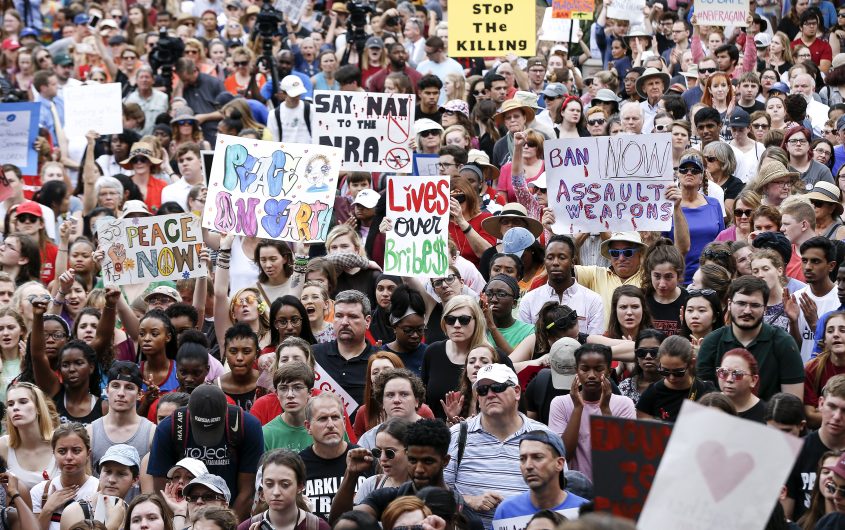
Don Juan Moore/Getty Images
NextGen Rising

Susanne Dieper
Director of Programs and Grants
Susanne Dieper is the Director of Programs and Grants at AICGS. She oversees the Institute’s programs and projects within the three AICGS program areas, manages all AICGS fellowships, and is in charge of grant writing. Her current focus is on issues related to transatlantic relations, immigration and integration, diversity, the next generation of leaders, workforce education, and reconciliation. She develops programs that align with the mission of AICGS to better understand the challenges and choices facing Germany and the United States in a broader global arena.
Previously, Ms. Dieper was in charge of organizational and project management at AICGS as well as human resource development and board of trustees relations. Prior to joining AICGS, she worked in transatlantic exchange programs, language acquisition, as well as the insurance industry in Germany.
Ms. Dieper holds an MBA from Johns Hopkins University with a concentration in International Business and an MA in English Linguistics and Literature, History, and Spanish from the University of Cologne. She has completed course work in nonprofit management at Johns Hopkins University.
__
The White Rose, the German Nazi resistance movement founded by Munich university students in 1942, started to trend on Twitter in February 2018 as Germans marked the 75th anniversary of the execution of Hans and Sophie Scholl. The Scholl siblings, 24 and 21 when they and their compatriots, among them Alexander Schmorell, Willi Graf, and Christoph Probst, were killed, were at the heart of the group that fought peacefully to counter the Hitler regime. Several of the members paid for their courage with their lives. The group’s members were predominantly in their early twenties, the next generation of the 1940s, future leaders at the time. Their courage, honesty, and enthusiasm to do their part in the German resistance movement were remarkable. The White Rose and its members are still among the best-known resistance fighters of the Nazi regime. Memorials devoted to the group continue to draw attention and be adorned with white roses.
Long derided as lazy and apathetic, young activists and protesters have been at the heart of recent activism in the United States—and on a variety of causes. The shooting at Marjorie Stoneman Douglas High School in Parkland, Florida, that left 17 people dead, including 14 students, has given rise to a movement of some of the youngest members of society. Members of Generation Z or Post-Millennials, born between the mid-1990s and 2000s, have come together to demand change to the country’s lax gun laws. Survivors of the Florida shooting are mobilizing to address state and federal lawmakers, and several survivors travelled to Tallahassee to urge state legislators to protect them and other students and children from gun violence. Together with other gun control activists, they met with President Trump at a White House meeting on February 22. A rally against mass shootings and gun violence—“A March for Our Lives”—is scheduled for March 24, 2018, in Washington, DC. The Generation Z organizers are anticipating 500,000 people and sister rallies are expected to take place in other U.S. cities and abroad.
Other issues have already pushed members of Generation Z to take to the streets following the November 2016 election of Donald Trump. High school students across the country staged a number of walk outs in opposition to the administration’s stance on issues like immigration, deportation, the “Muslim ban,” and minority rights. As social media experts, word about these protests spreads quickly and students leave their classrooms—mostly unexcused—to demonstrate. Not yet able to vote, Generation Z believes it is important to voice their concerns, to show support to those they feel are marginalized, and to demonstrate that they, too, are affected by the election outcome. Many of them will soon be able to go to the polls and vote directly.
Not yet able to vote, Generation Z believes it is important to voice their concerns.
In Germany, too, next generation demonstrations often aim to counter hate and discrimination and to promote religious freedom. While not restricted to a younger cohort, the counter-demonstrations to the nationalist, far-right, and anti-immigrant gatherings staged by the PEGIDA (Patriotic Europeans Against the Islamization of the West) movement beginning in late 2014 included large numbers of Millennials. The Salaam-Shalom Initiative, founded in 2013 by Millennials in Berlin, focuses on peace and respect for different religions. In December 2017, the group staged a candlelight demonstration against renascent anti-Semitism in Germany. The group addresses issues concerning job discrimination against minorities (Muslims and Jews) and the headscarf controversy (#myheadmychoice) that has permeated several European countries. While Germany’s youth has typically not been at the forefront of political demonstrations since the famed German student movement of 1968, studies indicate that their interest in politics is increasing steadily, defying the unflattering description of Millennials as uncaring and egocentric. In addition, voter turnout for German Millennials is generally higher than in the United States, as is evident from recent state and federal elections in Germany.
The need to encourage youth participation in U.S. elections is gaining traction. NextGen Climate, now NextGen America, was founded in 2013 with the mandate to prevent climate disasters and protect the rights of every American, and is now focused on bringing the next generation of voters to the polls in the United States. We are already seeing many Post-Millennials willing and motivated to raise awareness about a number of issues (gun control, immigration reform, and climate change, to name a few). Some teenagers note loudly that soon they will be able to vote themselves. Lawmakers in the state of Kansas are getting a first taste of Post-Millennial activism: several teenagers are running for governor, made possible because the state neglected to codify gubernatorial age requirements. The kids cannot vote, but they can govern!
Sophie and Hans Scholl were betrayed by a university custodian, subsequently arrested by the Gestapo and sentenced to death. Supporting peaceful protesters, young and old, is mostly the norm in Western democracies today. However, the right-wing smear campaigns and slander that some of the Parkland survivors have had to endure are a sad reminder that even the youngest members of society are not immune to the hate and conspiracy theories that are thriving today. The grownups in the country should demonstrate their leadership and come to the teenagers’ defense, denouncing attempts to question their suffering, courage, and activism in the strongest way possible. Then again, maybe this all-too-visible lack of leadership motivated the next generation to spring into action in the first place. They are indeed rising!









